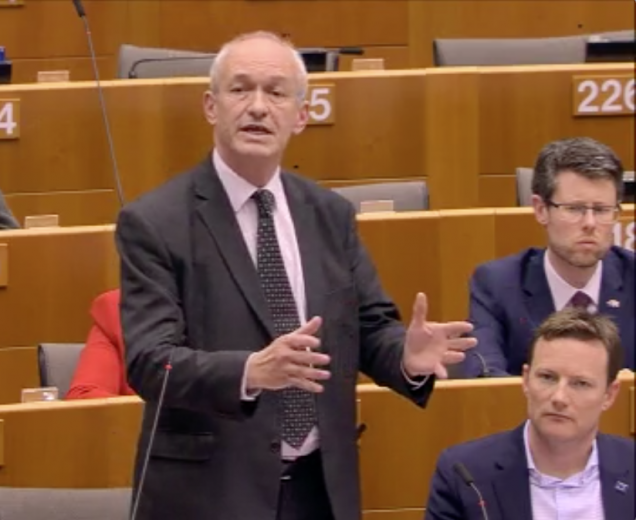I wrote a detailed blog post in January on the issue of VAT changes and how they affect small and micro-businesses, and I promised to follow up with details of further developments as Labour MEPs kept up the pressure.
In recent weeks, Labour MEPs — including myself and Anneliese Dodds, who leads for us on this subject — have been speaking to many small businesses to see what could be done. As we thought, it’s clear that many of the problems faced by British businesses have arisen because of the way the change has been implemented in Britain. But, as MEPs, we’ve also been looking at what can be done at European level to try and help.
Anneliese met with the new European Commissioner Andrus Ansip for a discussion of the most pressing issues. Mr Ansip’s portfolio covers the Digital Single Market, so he is responsible for overseeing the implementation of such rules across the EU.
- The European Commission cannot act autonomously on tax matters. It is the national governments of EU countries who decide on any common rules. It is they who threw out the previous EU rules and introduced these new ones.
- The question of a minimum threshold for small businesses had been one of the main battlegrounds when this legislation was first discussed. Labour, who were in government at the time, had pushed for a UK threshold to be applied across Europe. According to the Commissioner, the current UK government have not raised this issue.
- The question of a threshold is a difficult one. The UK’s internal threshold (£81,000 of sales per year) is significantly higher than that of other European countries. Some have a threshold of around €10,000, while others have no threshold at all. If such countries were to introduce a threshold, it would lead to a loss of tax revenue for them. If they don’t introduce a threshold, firms from countries that do will essentially be competing tax-free with their own taxpaying companies, and unsurprisingly, they don’t like that. This is what makes it difficult to get the agreement of every other EU country — which is what would be required for a further rules change.
- Worldwide it’s standard practice that sales taxes and VAT are paid in the buyer’s country, at the rate set by that country. The previous EU system of allowing VAT to be charged at the rate of the seller’s country, often at a lower rate — or even tax-free, if it was below that country’s threshold — was a special exception from international practice. In the end, most national governments decided this EU system caused them loss of revenue because it allowed big companies to invoice their sales from Luxembourg or other low-tax jurisdictions in order to avoid taxes — hence the change.
We knew much of this already, of course. What about the details of implementation and its effect on small businesses? On this, there were some positives from the Commissioner. We gave him a detailed briefing, covering all the issues that have been flagged up by constituents, and Mr Ansip undertook to look into these and get back to us in the coming weeks. He was particularly interested in looking into how existing online payment platforms can be adapted so they can automatically calculate and pay VAT. So, once again, watch this space.
Labour MEPs will keep pressing the Commission on the issue. But it remains the case that many practical problems have been caused or amplified by the way the rules change was introduced in Britain. This is an issue on which we will continue to press the UK government — as will, I’m sure, many small businesses!







4 Comments